
Building materials supplier Boral was quick off the mark to pass on an “out of cycle” price rise because it has the market muscle and knows that in the middle of a concrete pour customers will pay up.
Still, Australian business needs to work harder at curbing inflation by pulling as many levers as possible rather than instinctively passing it straight onto the customer base. This might be the difference between putting Australia on a sustainable recovery from the Covid crash or facing a round of rapid-fire interest rate rises.
Boral chief Zlatko Todorcevski said the price increases were aimed at reflecting the rising cost of energy and other supply chain impacts, including the difficulty of getting hold of new trucks. He also cited wages pressure building across the business.
His comments give us a better understanding around the type of inflation that is washing through the economy and what prices are likely to stay higher for longer.
Todorcevski said there were a couple of instances “where we’ve seen short, sharp increases, typically around energy, especially in coal and diesel”. He also insisted that Boral has been looking to offset the price rises in other ways.
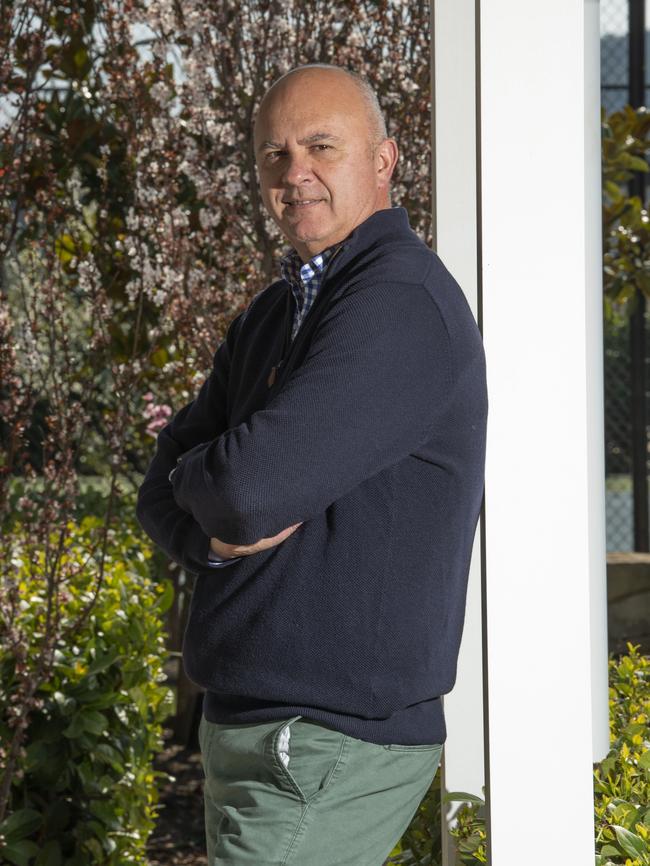
Inflation is breaking down into two broad areas – a shortage of commodities and supply chain pressures including labour, which will eventually untangle as more people come back to work.
A return of immigration in Australia and a resumption of the normal flow of international students should begin to take some pressure off labour markets and wages.
Critically the world’s biggest shipping company Maersk recently told fund managers that it expected to see some “normalisation” from the port bottlenecks in the second half of this year. However it warned that fuel costs were likely to remain high into 2023. Maersk experienced a 70 per cent increase in fuel costs and sought to recoup this through an average 68 per cent jump in spot freight charges.
Todorcevski declined to quantify his increases, but said the higher prices would be in all areas that Boral operates, and there would be different levels of increases in different markets.
Boral isn’t in the game of predicting commodity prices, but to push through price hikes it clearly believes higher fuel prices are here to stay. It also points to pricing power swinging back to players like Boral that are in the business of producing goods.
Todorcevski acknowledged as much, saying that a drop off in demand over the past two years, particularly through the east coast Covid lockdowns, had resulted in underlying price decreases for some products and attempts to lift prices during this time had failed.
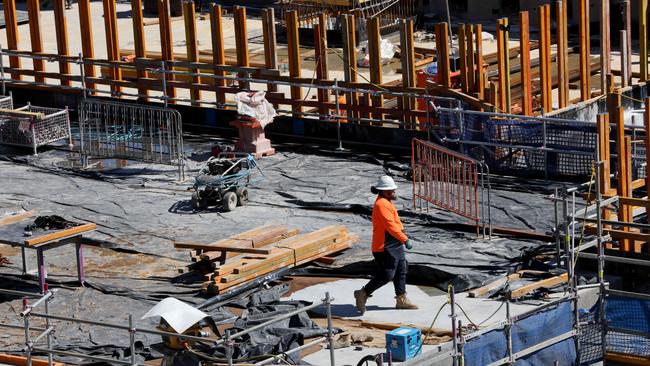
Oil prices hit their highest level in more than seven years on Monday, as a tight energy market was stoked by further tensions around the possible invasion of Ukraine by Russia. Brent crude futures – the global benchmark – touched $US96.16 a barrel. Any further disruption will see crude move past the $US100 mark.
Andrew Harding, chief executive of freight hauler Aurizon, is clearly seeing cost pressures – again mostly around fuel – becoming entrenched.
“If you look at discussions over the last couple of years it’s been people saying – and central banks saying – inflation is not going to be an issue, it’s transitory, it’s an effect of Covid,” Harding said.
“But in the last few months there’s been a head of steam building saying actually this could be longer lasting – I’m on the longer lasting side of the argument.”
Elsewhere players like Amcor this month said it was pushing through $910m of global price rises to cover material cost increases.
On the other side of the coin, retailers such as Terry Smart, the CEO of JB Hi-Fi, said his first port of call was to work with suppliers to keep prices down. He has seen price increases mostly in home appliances, but tries to keep them contained.
“The customer comes first and we’ve got to make sure our prices are sharp. We’re competitive so that really keeps us really keeps us focused on our costs and what we can and can’t pass on,” Smart said.
Reserve Bank governor Philip Lowe, who controls the timing of rate rises in Australia, last week told a parliamentary inquiry that he wasn’t yet concerned about the nation’s inflationary breakout.
In the December quarter underlying inflation increased to 2.6 per cent, the highest since June 2014. The RBA governor used the forum to more explicitly push his view that supply chain-led inflation is “temporary”.
–
Smart retail
JB Hi-Fi’s second-time chief executive Terry Smart didn’t miss a beat with a $250m cash return through a share buyback on top of a robust $190m dividend. Very few retailers in the world have rewarded shareholders with a capital return in recent years, while the JB Hi-Fi machine continues to show resilience in the face of Covid lockdowns.
JB Hi-Fi, which also owns the Good Guys, posted a 9.4 per cent drop in December half profit to $287.9m while sales dipped 1.6 per cent to $4.86bn. This came while the bulk of its stores were shut across greater Melbourne and Sydney for much of the half and Omicron was keeping people out of shopping malls leading up to Christmas.
Of every dollar spent at JB Hi-Fi a little over 24c is through online channels. This time a year ago it was just under 14c.
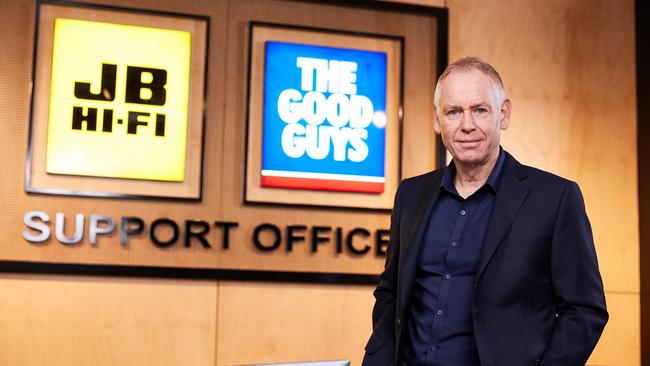
Smart, who retook the CEO role from long-serving Richard Murray six months ago, showed his investor-first colours. The share buyback was simply nothing better to do with the extra funds given JB Hi-Fi is hitting all the right notes.
“I don’t think we’re doing it at the expense of the business. Because that’s absolutely not the case.”
Going forward he said there was a lot to learn out of Covid period that would benefit the business, particularly as the traditional low cost retailer built its online business.
“We hope the market gets a lot more confidence in our ability to execute online … previously people didn’t seem to give us any credit for what we’re doing online. We’re now really seeing that consumers seamlessly switch between those channels. That should give us all confidence that we can continue to grow all channels into the future,” Smart said.
On Monday JB Hi-Fi’s market cap again pushed $6bn as its shares surged back to near record territory of $51.21. This sees it open a gap over fashion retailer Premier Investments, now run by Richard Murray, which is valued at $4.6bn.





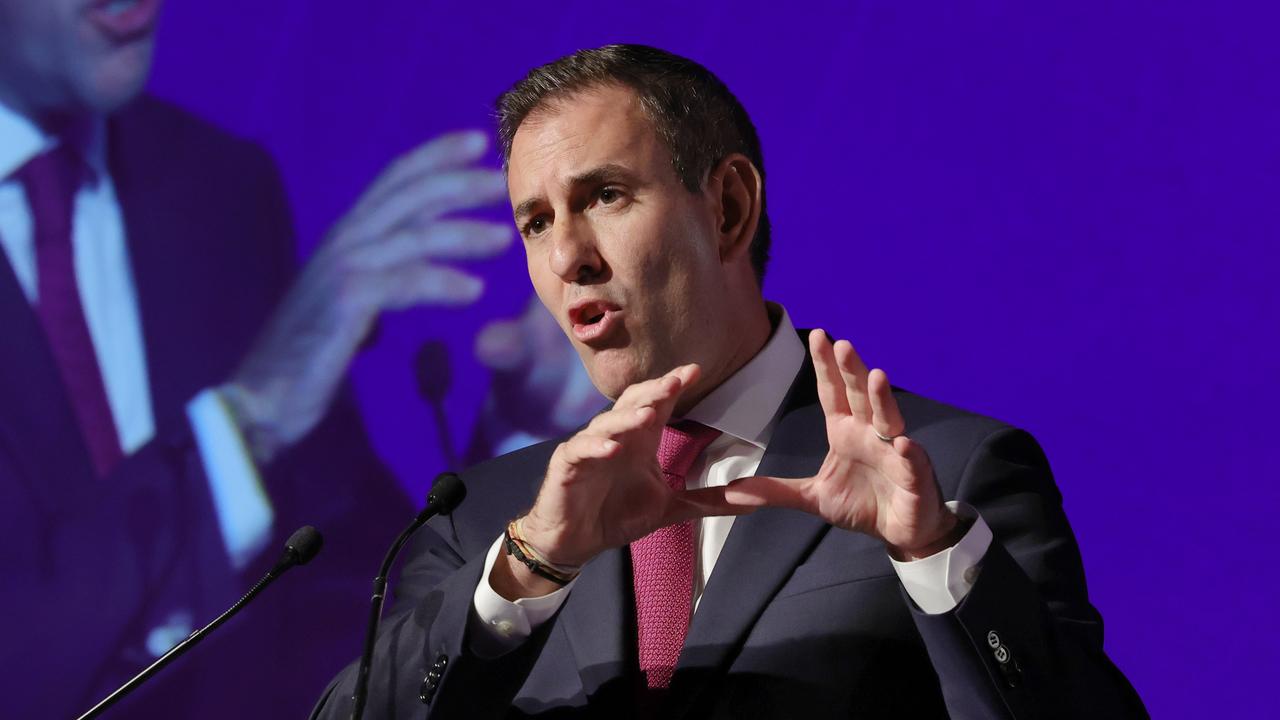
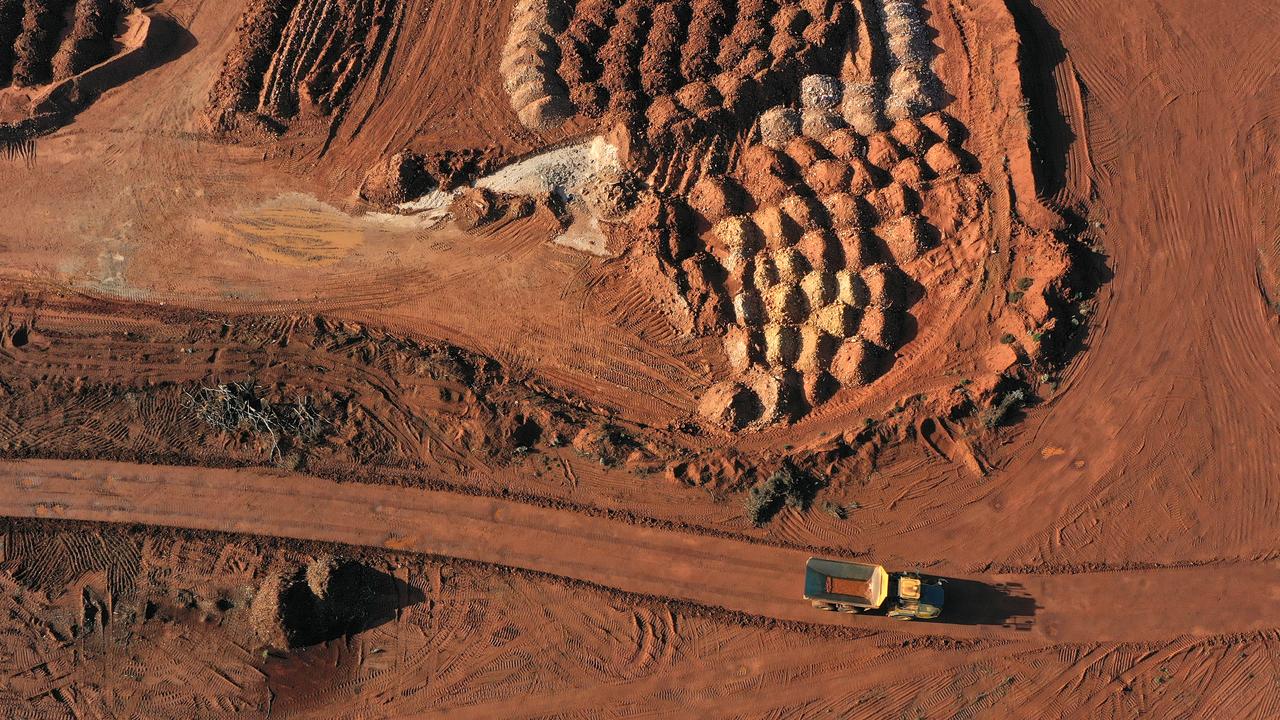
Remember the long-running fuel levy on airline tickets? How about the recent drought levy on milk? Get ready for a new one, the “inflation levy”.